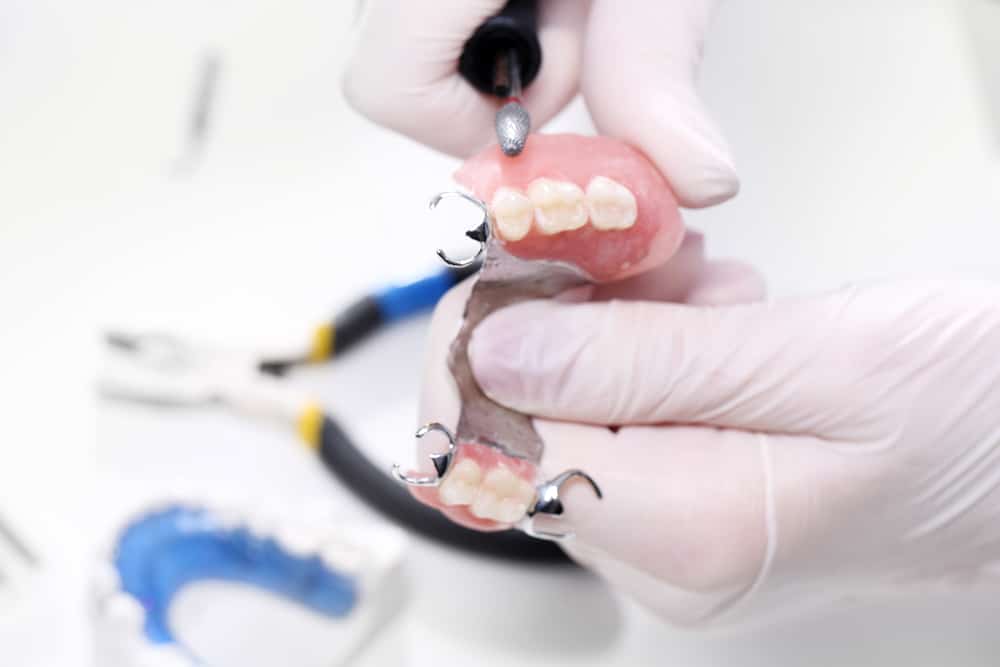
Missing all or many teeth can make it difficult to eat and to have confidence in everyday conversations. Snap-on dentures are one of many possible solutions to the problem, and one of the most durable options that will last for years to come.
Snap-on dentures (sometimes called snap-in dentures) may not be right for everyone, however. It’s important to know the pros and cons of snap-on dentures, so you can make an informed choice for your dental health.
What Are Snap-On Dentures?
Traditional dentures are removable. As a result, they can often slip out of place or make it difficult to chew certain things. Snap-on dentures, on the other hand, are a more stable alternative, staying snug in place without slipping.
The process of getting snap-on dentures can take a few months. The first step is getting dental implants or screws, creating a way for the dentures to snap into place. Depending on the situation, 2 to 10 screws or implants may be implanted.
The snap-on denture can then be created to fit onto these implants. The dentures may be attached permanently or may be removable, making them easier to clean.
What Are the Benefits of Snap-On Dentures?
The most important characteristic of snap-on dentures vs. traditional dentures is that they will stay put when talking. They also make it easier to chew food, especially foods that are hard or sticky.
Additionally, snap-in dentures usually fit the mouth better than traditional dentures and are more comfortable as a result. They protect the jaw bone and help to prevent bone loss.
Many wearers feel that snap-in dentures look more like natural teeth compared to conventional dentures, which is a huge consideration for many.
Are There Potential Problems With Snap-On Dentures?
It depends on the perspective of the patient, but there are some issues to consider before jumping into snap-on dentures.
First, surgery is a requirement. Getting dental implants can involve an uncomfortable procedure and require lots of healing time for the swelling to go down before snap-on dentures can be worn. It is possible that a bone graft may be required to support the implants, and that process is another surgery and can add time to the overall care timeline.
Due to the implant surgery and the number of appointments required to create and install the snap-on dentures, the process can be more expensive than traditional dentures.
Finally, snap-on dentures can degrade over time. Multiple appointments will likely be required to tighten the dentures if they become loose, and at some point, they will need to be replaced.
Should I Get Snap-On Dentures?
Whether or not snap-in dentures are right for you will depend on your unique situation. Contact us at Dison Family Dentistry today for a consultation.
